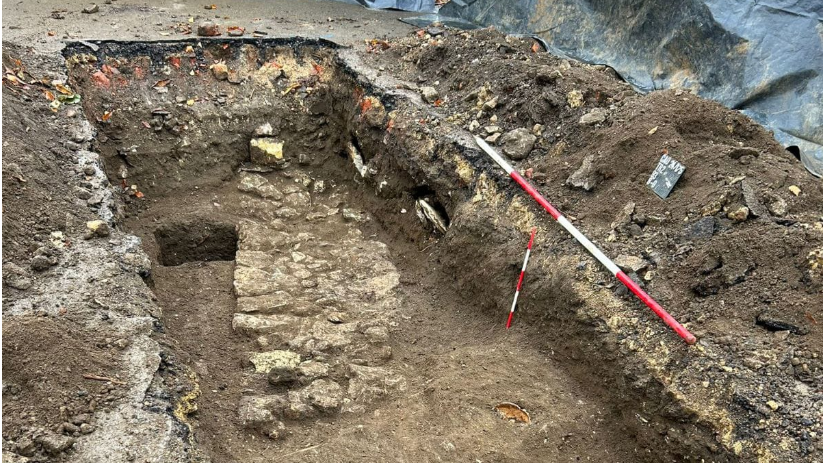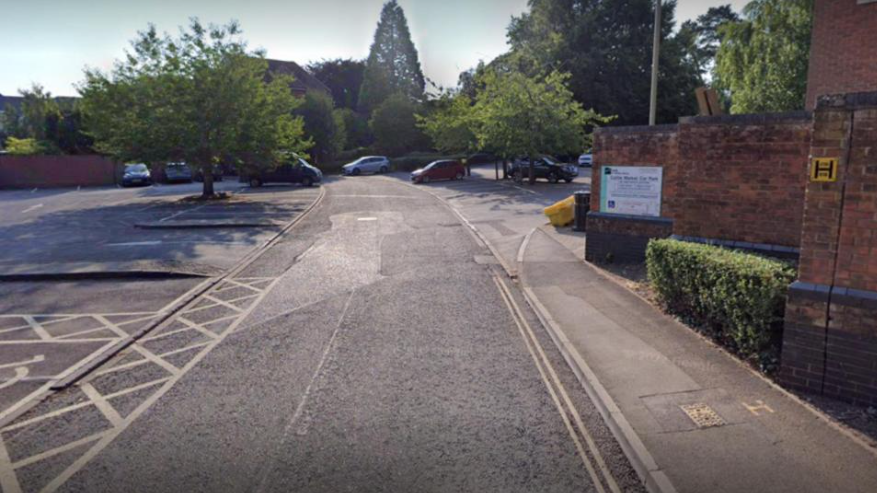Human burial site discovered under car park

Remains of a stone wall have been identified on the site
- Published
Archaeologists have discovered a "significant" medieval human burial site underneath a car park.
Thames Valley Archaeological Services surveyed Abingdon's Cattle Market car park ahead of works being carried out by Vale of White Horse District Council and Thames Water.
James McNicoll-Norbury, from consultancy firm ADAS, said the burials and a stone wall, which was also found, would be preserved.
The site lies in an area of considerable archaeological significance with the nearby Abbey Baptist Church, and previous archaeological work in the area found further medieval burials and Iron Age artefacts.

A burial site and stone wall was found during preliminary work to improve the car park
Six trenches revealed layers of archaeological deposits, including pottery, dating to the medieval and Roman periods.
Human burials found under the car park are likely to be associated with other burials previously recorded in the surrounding area, ADAS said.
The structural remains of a stone wall have been identified and further work is being carried out to establish the date of the wall.
It is thought that it likely corresponds with the location of the former Bell Tower that was recorded in the area.
Mr McNicoll-Norbury said: “The findings are considered to be of high archaeological significance."
Work includes improving the car park layout, resurfacing to remove potholes and lighting to help to make it safer for all users, as well as installing a rain garden to help manage rainwater and prevent overwhelming the drains.
The archaeological finds mean the project will not be completed until the end of March 2025.
However, the council has agreed to temporarily fill the trenches and reopen it for visitors during the festive period.
Councillor Mark Coleman said: “It’s exciting to discover more about the fascinating history of Abingdon and the abbey.
“I’m pleased we will be able to preserve the cemetery site."
Get in touch
Do you have a story BBC Oxfordshire should cover?
You can follow BBC Oxfordshire on Facebook, external, X (Twitter), external, or Instagram, external.